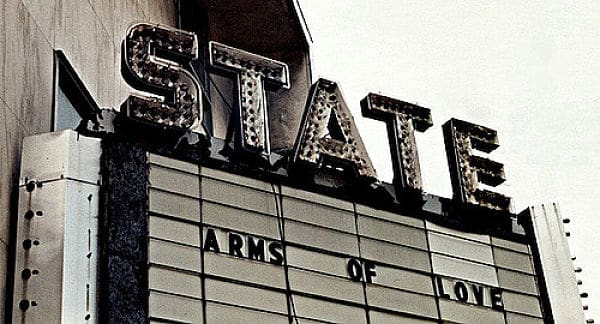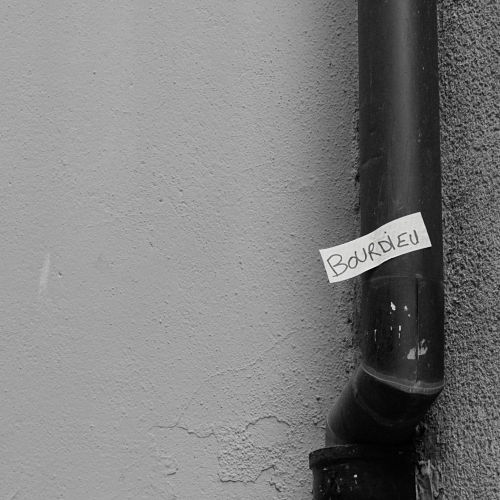As stated on its back cover, in this book the influential French sociologist Pierre Bourdieu (1930-2002) investigates the state’s ‘extraordinary power of producing a socially ordered world without necessarily giving orders, without exerting a constant coercion’. After all, ‘there isn’t a policeman behind every car’. This ‘quasi-magical effect’ of the state, he adds, demands an explanation. In other words, how did the state’s powerful influence come about? To answer this question, Bourdieu embarked on a three-year course of lectures (1989-1992) at the Collège de France, now carefully edited by Patrick Champagne and colleagues, along with a brief but helpful editors’ note, two appendices, two bibliographies, and 28 pages of endnotes. Translated by David Fernbach, the English is fluent, with none of the awkwardness so often found in French translations, perhaps owing in part to the oral nature of the original text.
As the editors rightly point out, the importance of this work lies in its gathering in one place of Bourdieu’s extensive, but little known, investigations into the genesis of the state in the wake of his State Nobility (1989). They note that Bourdieu only started using the term ‘state’ in the early 1980s. Having previously worked on the genesis of a number of other fields (photography, art, sociology, etc.), he eventually turned to the systematic study of the state as part of a general theory of social space late in his career.
 The book is divided into three sections, each corresponding to an academic year. Year 1 explores how the concentration of bureaucratic resources led to the formation of states. The year starts with a modified definition of Weber’s famous state formula. For Bourdieu, states possess the monopoly not only of legitimate physical violence but also of symbolic (to do with prestige, renown, recognition) violence. He then steers clear of two ahistorical approaches to the state: the ‘optimistic functionalism’ of the state as a neutral site for the pursuit of the public good (Hobbes and Locke), and the ‘pessimistic functionalism’ in which the state is a coercive instrument of oppression (Marx).
The book is divided into three sections, each corresponding to an academic year. Year 1 explores how the concentration of bureaucratic resources led to the formation of states. The year starts with a modified definition of Weber’s famous state formula. For Bourdieu, states possess the monopoly not only of legitimate physical violence but also of symbolic (to do with prestige, renown, recognition) violence. He then steers clear of two ahistorical approaches to the state: the ‘optimistic functionalism’ of the state as a neutral site for the pursuit of the public good (Hobbes and Locke), and the ‘pessimistic functionalism’ in which the state is a coercive instrument of oppression (Marx).
He is then in a position to retrace the invention of public interest – an ‘obligation of disinterestedness’ – and how it was made into official law in opposition to private or particular interests (pp. 48-54).
In Year 2 the opening gambit is a distinction between economicist (e.g. Elias, Tilly) and non-economicist (Sayer and Corrigan) models of state genesis. Bourdieu takes the latter, culturalist path, arguing that over a long period of time ‘state actions’ created a nomos, i.e. ‘common principles of vision and division’ (Durkheim) that shaped the social world through key institutions such as the school, the army, and the official arts. This move takes him to England and Japan, two island nations that demonstrate that cultural archaism and economic transformation can go hand in hand. In both countries, an official, quasi-religious culture (e.g. kabuki theatre) became codified and canonised as ‘authentic’ during periods of rapid industrialisation.
In the third and final year, Bourdieu reconstructs the transition from a logic of dynastic states centred on the royal house to the eventual triumph of a very different logic, that of raison d’etat – a transformation from personal (kin-based) to impersonal (bureaucratic) reproduction. This was a protracted, messy process in which jurists and clerks were crucial to the invention of a res publica and a powerful new space: the bureaucratic field. Contrary to ‘a certain materialist tradition’, he concludes that the state became a ‘central bank of symbolic capital’, with bureaucracy being a meta-field in which social agents struggle over the relative power of other fields across the social space. Today the state is a ‘well-founded illusion’ or ‘theological entity’ whose effects are all too real (pp. 9-13), constituting ‘the form of collective belief that structures the whole of social life in highly differentiated societies’ (p. 381).
Three key features of On the State merit particular attention: Bourdieu’s ‘genetic sociology’ method; his central argument about the state as a social reality founded in collective belief; and the unclear role of nations and nationalism in his theory.

First, Bourdieu rejects what he sees as the artificial boundaries separating history, sociology and anthropology, and regards ‘genetic thinking’ as the best weapon to combat ‘the amnesia of genesis’ that afflicts most social theorists (pp. 366-370). He cogently takes issue with functionalist theories of the state that neglect to inquire into the conditions that made current state functions possible in the first place. Additionally, he advises historians to take seriously the epistemology of their own craft. Although historical transitions are non-teleological ‘one-way street[s]’ (pp. 39-43), the trajectory of states resembles a funnel in that the ‘space of possibilities’ narrows as time goes by (pp. 116-119). Given that the chasm between historians and social theorists is as wide today as it was at the time of Bourdieu’s writing, there are still valuable lessons here for students and scholars wishing to bridge it.
The book’s collective belief thesis has much to recommend it, too, but it does not give enough credit to people’s critical faculties. Bourdieu suggests that many of the things that today we take for granted, e.g. school timetables, spelling conventions, road signs, etc. are the outcome of state-related struggles between dominant and dominated social agents that were long forgotten (pp. 171-175).
However, while this may well be the case with school schedules and traffic signs, I am not persuaded that it applies to the way people think and talk about the state itself – or indeed about its numerous representatives.
Research and personal experience tells us that around the world, faith in the state ranges from devout believers at one end of the spectrum to state ‘atheists’ of many stripes (including libertarians and anarchists) through state ‘agnostics’ and other doubters. In fact, Bourdieu shows that wealth redistribution paradoxically helped emerging states to accumulate symbolic capital. Yet this came at a cost, for the state intermediaries in charge of this process found themselves in a position of ‘structural hypocrisy’, i.e. of being able to derive personal gain through their double agency as both state representatives and self-interested individuals (pp. 281-289). All political cultures around the world harbour both folk and intellectual critiques of this inherent corruption of the state system, but these are missing from Bourdieu’s doxic model of state power.

Arguably the weakest part of the book is Bourdieu’s handling of the question of nations and nationalism in relation to the formation of states. While students of nationalism will find food for thought in the discussion about the origin of states, they will be disappointed by his scant attention to the literature on ethnicity and nationalism beyond a nod to Anderson’s Imagined Communities (p. 347) or his commonplace contrast between France’s jus loci and Germany’s jus sanguinis paths to nation-statehood (pp. 350-352). On the other hand, this weakness presents nationalism scholars with an opportunity to design alternative genetic models of the nation-state, particularly in view of the prominence given in Bourdieu’s analysis to old ‘nations’ such as France, England and Japan; precisely the countries that greatly interest non-modernist theorists of the nation such as Anthony D. Smith.
The scale, format, and sheer ambition of On the State make it a challenging book to read, or indeed to review. These are no ordinary, pre-packaged lectures; they form a wide-ranging, meandering, at times disorientating, investigation into the genesis of the state. To move the discussion forward Bourdieu draws liberally from his previous work in Kabylia (Algeria), among Béarn peasants in France, and on housing policy also in France, as well as from a vast set of historical and sociological sources. More than merely thinking aloud, Bourdieu turned his lecture series into a long-term research project conducted live before a mixed audience – ranging from sociologists well versed in his work to complete novices –, occasionally pausing to reflect on the scientific and pedagogical difficulties that such an endeavour entails.
Whilst admirers of Bourdieu will be fascinated to track his thoughts on a complex issue as they evolved over three years, students and scholars new to this author would be wise to study his more accessible texts before attempting the present work.
Pierre Bourdieu. 2014. On the State: Lectures at the Collège de France, 1989-1992. P. Champagne, R. Lenoir, F. Poupeau, & M. C. Rivière (eds.). London: Polity. 480 pp. Hb: £ 30.00. ISBN: 9780745663296.
**********
Featured image (cropped) by Paul Kamblock (flickr, CC BY-NC-ND 2.0)



